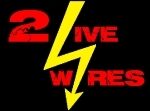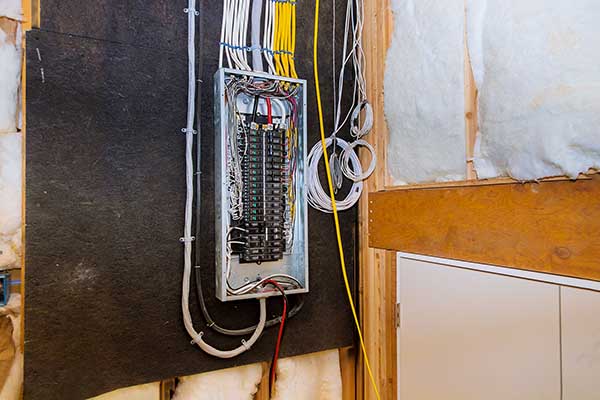Understanding Your Home's Electrical Panel
Your home’s electrical panel is much like the heart of your body; it’s essential, yet often unnoticed until a problem arises. This panel, sometimes known as a breaker box, is the central point where your home’s electricity is regulated and distributed.
Every flick of a switch, every turned-on appliance, and every light bulb shining brightly in your home relies on this crucial component. Understanding your electrical panel is not just about being familiar with your home’s functionality; it’s about ensuring the safety and efficiency of your daily life.
This beginner’s guide will navigate you through the basics of your electrical panel, its critical role, and the telltale signs that it might need an upgrade, ensuring you are well-equipped to keep your home running safely and smoothly.
Anatomy of an Electrical Panel
Start with Safety
The electrical panel is the epicenter of your home’s electrical system. It consists of several key components, each playing a vital role in managing your home’s electricity.
- Circuit Breakers: These are the most recognizable parts. Each breaker controls the flow of electricity to a different part of your house. If there’s an overload or a short circuit, the breaker “trips,” cutting off power to prevent damage or fire.
- Main Switch: This is the control hub for the electricity entering your home. It can shut off power to the entire house and is crucial in emergencies.
- Bus Bars: These metallic strips conduct electricity, distributing it to the circuit breakers.
- Neutral Bar: A grounding component, the neutral bar ensures the safe return of unused electricity to your home’s ground system.
- Service Connectors: These connect the panel to the external power grid.
A Word of Caution!
Be alert to signs like rust on the panel, a burning smell, or any unusual noise. These are indicators that your electrical panel needs attention.
Understanding the layout and function of these components is the first step in recognizing the importance of your electrical panel. It’s not just a box with switches; it’s a carefully designed system ensuring the safe distribution and control of electrical flow throughout your home. Each component works in harmony to prevent electrical overloads, safeguarding your home from potential hazards.
Regular maintenance of these components is essential. Dust, debris, and general wear and tear can impact their efficiency. Simple observations like ensuring the panel door closes properly or that there are no unusual sounds coming from the breakers can be crucial in early problem detection.
Understanding Electrical Panel Safety
The electrical panel is not only central to distributing power in your home but also crucial in ensuring electrical safety. Its primary role in safety is to prevent overloads and short circuits, which can lead to electrical fires or damage to your appliances and electronics. Each circuit breaker in the panel is designed to handle a certain amount of electricity. If this limit is exceeded, the breaker trips, cutting off power to that circuit. This is a vital safety mechanism that protects your home and family.
Regular maintenance and inspections are key to ensuring this safety mechanism functions correctly. Over time, connections can become loose, or breakers can wear out, diminishing their effectiveness. It’s crucial to address these issues promptly. Warning signs that your electrical panel may not be operating safely include breakers that trip frequently or refuse to stay reset, a panel that feels hot to the touch, or any visible signs of damage or wear.
Another important aspect of electrical panel safety is the installation of Ground Fault Circuit Interrupters (GFCIs) and Arc Fault Circuit Interrupters (AFCIs). GFCIs protect against electric shock, while AFCIs protect against fires caused by arcing faults. These are especially important in areas prone to moisture, like bathrooms and kitchens.
“Very professional. They actually answer your call, it doesn’t go to voice mail. They arrive on time. I hired them for electrical work on my pool and outlets. I was very happy with their work. I have them coming in again to put in a new baseboard heater.”
-Karen Z.
Tip
Regularly test your GFCI outlets by pushing the test button to ensure they are functioning properly. This simple step can prevent serious accidents.
Signs It’s Time for an Electrical Panel Upgrade
Your electrical panel may not last forever, and there are certain signs that indicate it might be time for an upgrade. These signs are often subtle but important to recognize for the safety and efficiency of your home’s electrical system.
- Age of the Panel: If your home is over 20 years old and still has its original panel, it may not be equipped to handle modern electrical demands.
- Frequent Tripping: If breakers trip regularly, it’s a sign that your panel is struggling to handle your home’s electrical load.
- Buzzing Sounds or Burning Smell: These are clear indicators of a potentially serious problem within your panel.
- Expansion of Home or Use of High-Power Appliances: Adding new rooms or using power-intensive appliances like HVAC systems or hot tubs may require a panel upgrade to handle the increased electrical load.
Upgrading your electrical panel is not just a matter of replacing an old piece of equipment; it’s about adapting your home to current electrical needs and safety standards.
The Benefits of Upgrading Your Electrical Panel
Upgrading your electrical panel is more than a routine update; it’s a crucial investment in your home’s safety and functionality. Here are the key benefits:
- Enhanced Safety: A modern electrical panel reduces the risk of electrical fires and other hazards. It’s equipped to handle higher electrical loads safely, which is essential in today’s high-tech homes.
- Increased Capacity: Older panels may not be able to support the electrical demands of modern appliances and devices. Upgrading ensures that your electrical system can accommodate current and future needs.
- Improved Energy Efficiency: Newer panels are more efficient and can help reduce energy waste, potentially lowering your electricity bills.
- Home Value Increase: An updated electrical panel is a valuable selling point, signaling to potential buyers that the home is safe, up-to-date, and ready for modern living.
Call us today to request more information about upgrading your electrical panel.
DIY vs. Professional Help: Making the Right Choice
How to Take Action
When it comes to electrical work, particularly something as complex as upgrading an electrical panel, the expertise of professionals like 2 Live Wires is invaluable. DIY attempts at electrical work can be dangerous and may lead to costly errors or even serious injuries.
- Safety Risks: Electrical work requires specialized knowledge and tools. Mistakes can result in electric shock, fires, or damage to your home’s electrical system.
- Permits and Codes: Electrical work often requires permits and must adhere to local building codes. Professionals are familiar with these regulations and ensure that all work is compliant.
- Quality of Work: Professional electricians have the training and experience to perform high-quality, reliable work. This expertise is crucial for something as important as your home’s electrical panel.
Navigating the Upgrade Process
Upgrading your electrical panel involves several steps, each critical to ensuring the process is smooth and effective:
- Assessment: A professional electrician will assess your current panel and determine the need for an upgrade.
- Selection: Based on your home’s needs, the right panel and capacity will be chosen.
- Installation: Skilled electricians will safely remove the old panel and install the new one, ensuring everything is up to code.
- Testing: After installation, the new panel is thoroughly tested to ensure it’s functioning properly and safely.
Post-Installation: Ensuring Ongoing Safety and Efficiency
After the installation of your new electrical panel, regular maintenance is key:
- Schedule Routine Inspections: Have a professional inspect your panel periodically to ensure everything is in good condition.
- Stay Informed: Keep yourself updated about your electrical system and any potential updates or recalls.
Tip
Don’t wait until you experience electrical issues. Contact 2 Live Wires for an expert evaluation of your electrical panel and ensure your home’s safety and efficiency.

Conclusion: Protecting Your Home with Electrical Panel Service
Understanding and maintaining your home’s electrical panel is crucial for safety, efficiency, and peace of mind. This guide has outlined the importance of the electrical panel, signs that it’s time for an upgrade, and the benefits of doing so.
Regular maintenance and timely upgrades are not just about preventing problems; they’re about ensuring your home is equipped to meet your electrical needs now and in the future. By being proactive, you safeguard one of your most significant investments – your home.


